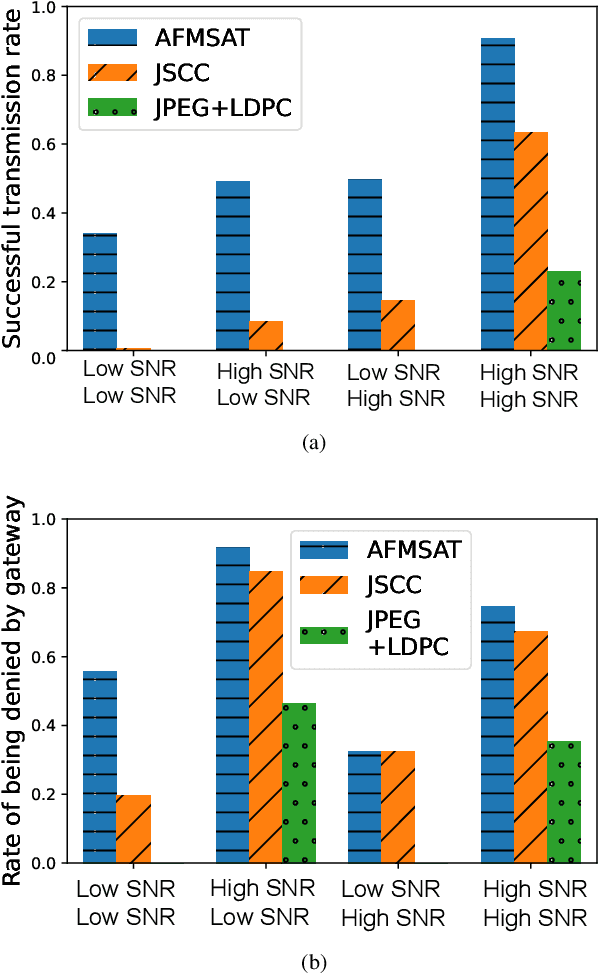Semantic Satellite Communications Based on Generative Foundation Model
Paper and Code
Apr 18, 2024



Satellite communications can provide massive connections and seamless coverage, but they also face several challenges, such as rain attenuation, long propagation delays, and co-channel interference. To improve transmission efficiency and address severe scenarios, semantic communication has become a popular choice, particularly when equipped with foundation models (FMs). In this study, we introduce an FM-based semantic satellite communication framework, termed FMSAT. This framework leverages FM-based segmentation and reconstruction to significantly reduce bandwidth requirements and accurately recover semantic features under high noise and interference. Considering the high speed of satellites, an adaptive encoder-decoder is proposed to protect important features and avoid frequent retransmissions. Meanwhile, a well-received image can provide a reference for repairing damaged images under sudden attenuation. Since acknowledgment feedback is subject to long propagation delays when retransmission is unavoidable, a novel error detection method is proposed to roughly detect semantic errors at the regenerative satellite. With the proposed detectors at both the satellite and the gateway, the quality of the received images can be ensured. The simulation results demonstrate that the proposed method can significantly reduce bandwidth requirements, adapt to complex satellite scenarios, and protect semantic information with an acceptable transmission delay.
 Add to Chrome
Add to Chrome Add to Firefox
Add to Firefox Add to Edge
Add to Edge